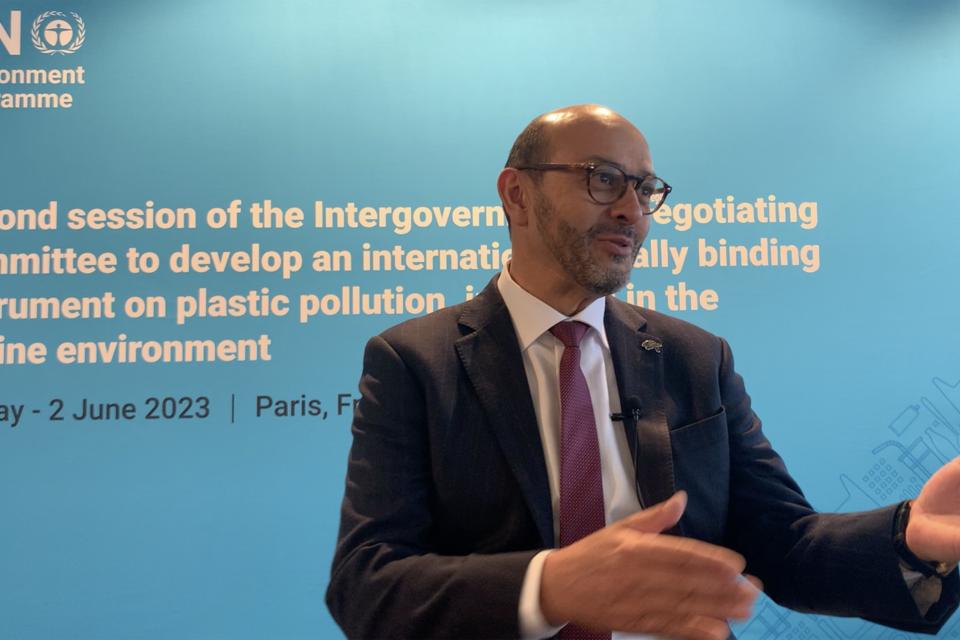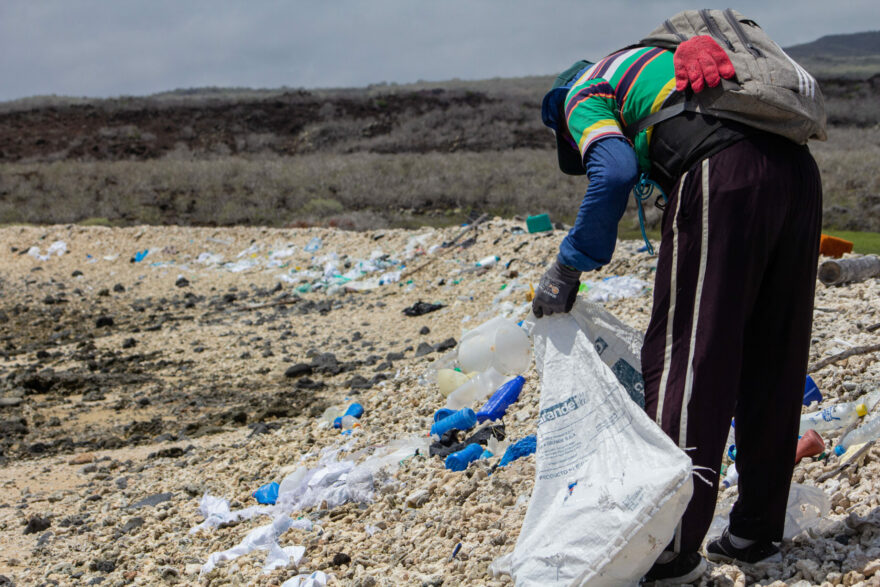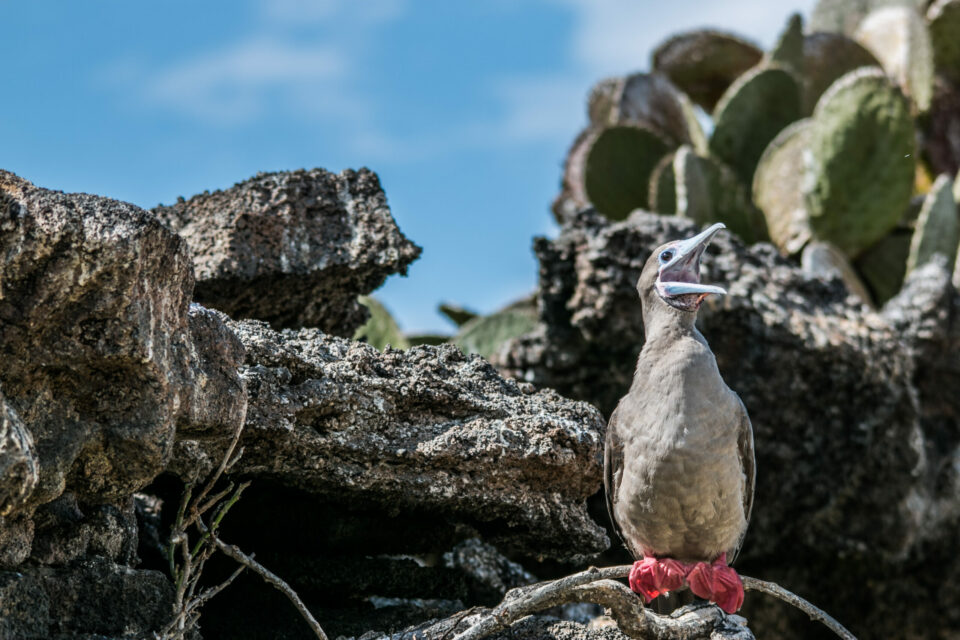

Climate change and plastic pollution: the inextricable link
Every year, approximately 300 million tons of plastic are produced worldwide, half of which are single-use items. An alarming proportion of this plastic ends up infiltrating our natural environment.
Even Galapagos, one of the most pristine ecosystems in the world, is not immune to the devastating effects of plastic pollution, with over eight tonnes of plastic removed from its beaches every year, of which more than 95% originates from outside the Galapagos Marine Reserve.
At least 38 Galapagos species have been found to be entangled in plastic, living in affected habitats or having ingested plastic after mistaking it for food. Tragically, just one straw stuck in the gut of a whale shark is enough to kill one of these beautiful animals. This is why we have made it our mission to make Galapagos plastic pollution free once again.
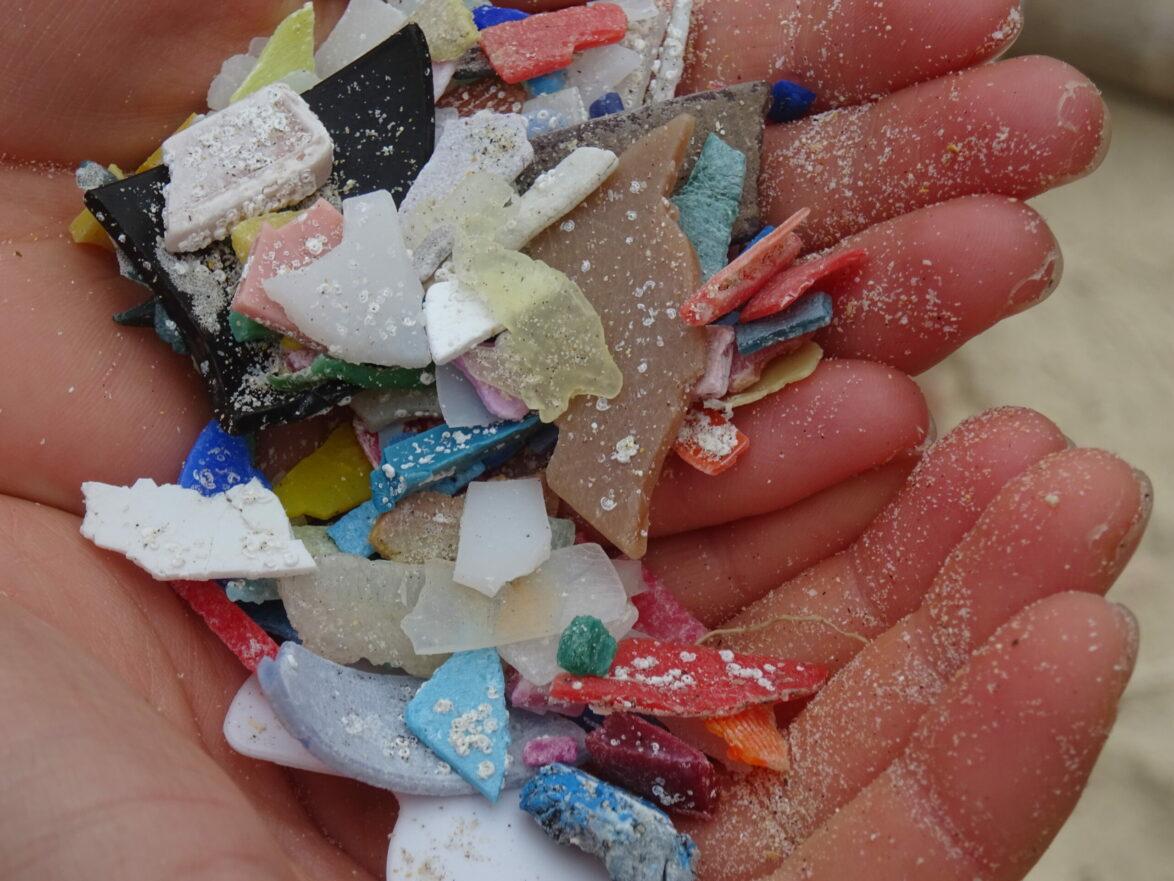
Plastics and climate change
Plastic production, conversion and waste management generate about 4% of total greenhouse gas emissions and over 15% of global carbon dioxide emissions which contribute to climate change. The average European throws away around 114kg of plastic yearly, equating to roughly the same emissions as flying from London to Egypt. Approximately 90% of the emissions from the plastics lifecycle are from the production and conversion stages due to the high energy intensity of the process and the fossil fuel-based origins of most plastics.
Plastic waste management accounts for the remaining 10% of emissions, but this figure varies significantly depending on the disposal method. Recycling plastics can decrease greenhouse gas emissions by reducing the demand for new plastic production. Unfortunately, only 9% of plastics are currently recycled each year.
Not only does the plastics industry contribute to climate change, but climate change can exacerbate plastic pollution. Extreme weather events caused by rising global temperatures can disperse plastic into the natural environment, where it can infiltrate ecosystems. Heat can also cause plastics to break apart more rapidly, accelerating the creation of microplastics which have been found everywhere on Earth, from the depths of the Mariana Trench to the top of Mount Everest.
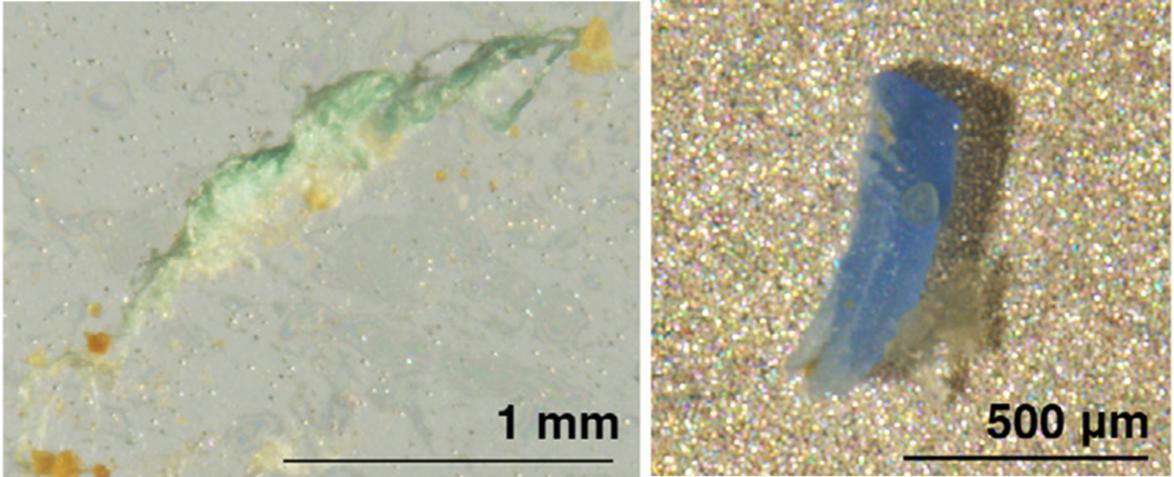
300 m
tonnes of plastic are produced worldwide each year
How can policies help?
By 2060, greenhouse gas emissions are expected to double, while global plastic use will triple. Stringent policies are therefore needed to limit these increases and their impact on our environment. Both plastics and climate policies can help mitigate the effects of plastic pollution and bring countries closer to achieving their emissions objectives. Encouragingly, many countries around the world are implementing both kinds of policies.
The UN Intergovernmental Negotiating Committee (INC) is currently working towards agreeing a legally binding global plastic pollution treaty by 2024. GCT attended the second round of these negotiations in Paris earlier this year. In parallel, 193 States and the European Union have joined the Paris Climate Accords, pledging to substantially reduce greenhouse gas emissions to limit the global temperature increase in this century to 2 degrees Celsius.
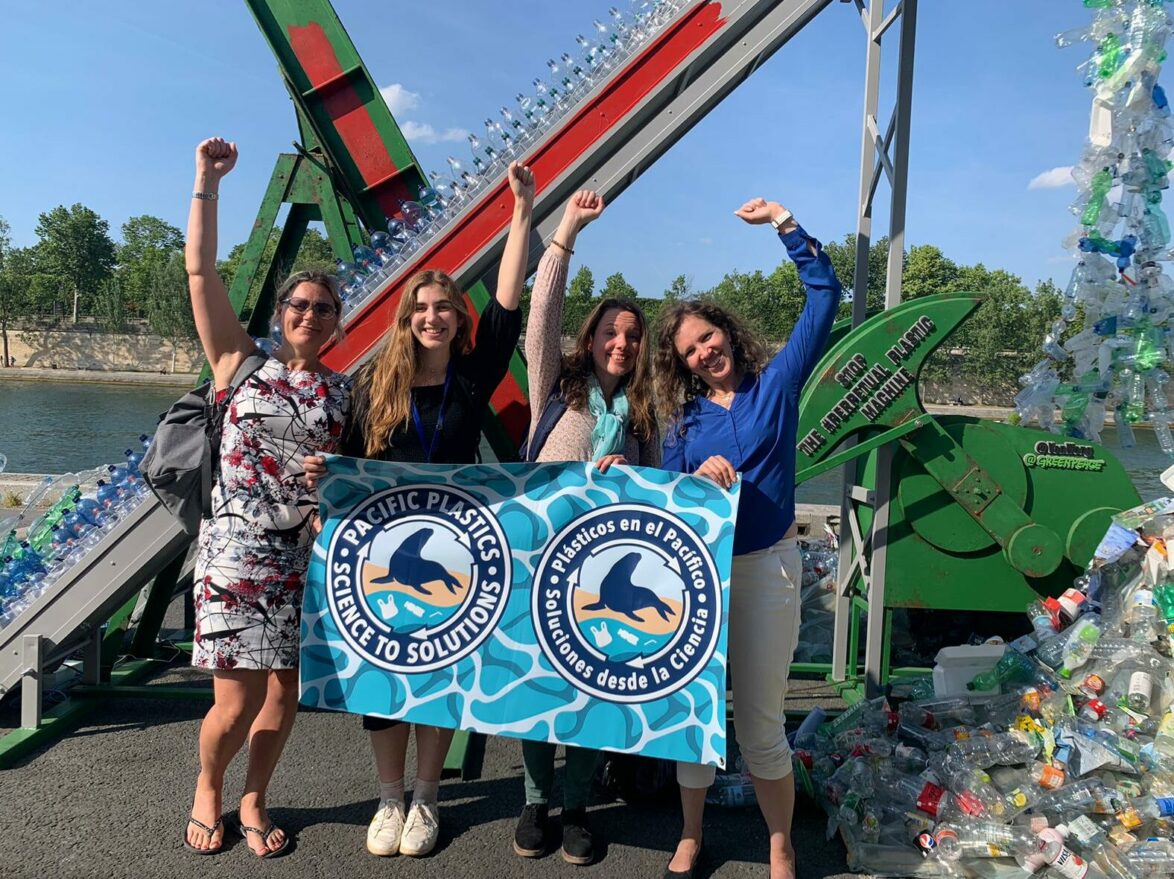
Not only does the plastics industry contribute to climate change, but climate change can exacerbate plastic pollution.
How can individuals help?
There is great potential to reduce the impact of the plastics industry through our everyday actions, and start building plastic-free habits into our daily routines. Interestingly, the types of plastic polymers used to make fibres for textiles and clothes are some of the most significant contributors to emissions, so buying clothes at second-hand shops can make a positive impact. Simple switches like replacing single-use plastic bottles or bags with reusable alternatives can help to reduce emissions and the amount of plastic contaminating the natural enviroment.
Find out more about our Plastic Pollution Free Galapagos programme and help us fund this vital work by donating or by becoming a member of GCT.
9 %
of plastics are currently recycled each year
Support our Ocean Protection Appeal
Our vision is of the seas around Galapagos free of pollution and full of life, but we need your help to tackle the interconnected threats of unsustainable fishing, plastic pollution and climate change.
Related articles

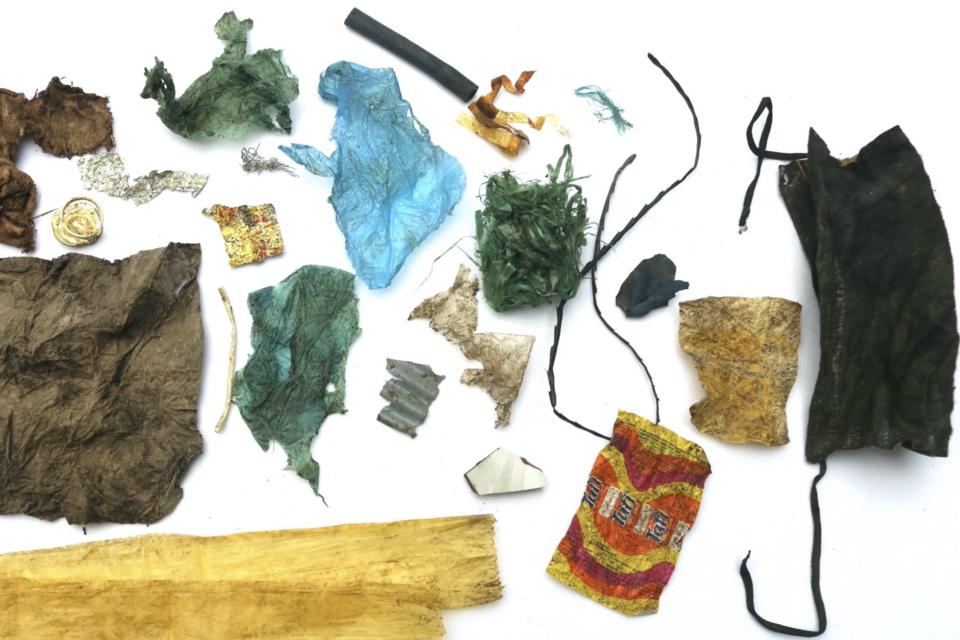
New research shows that Galapagos giant tortoises are ingesting plastic waste
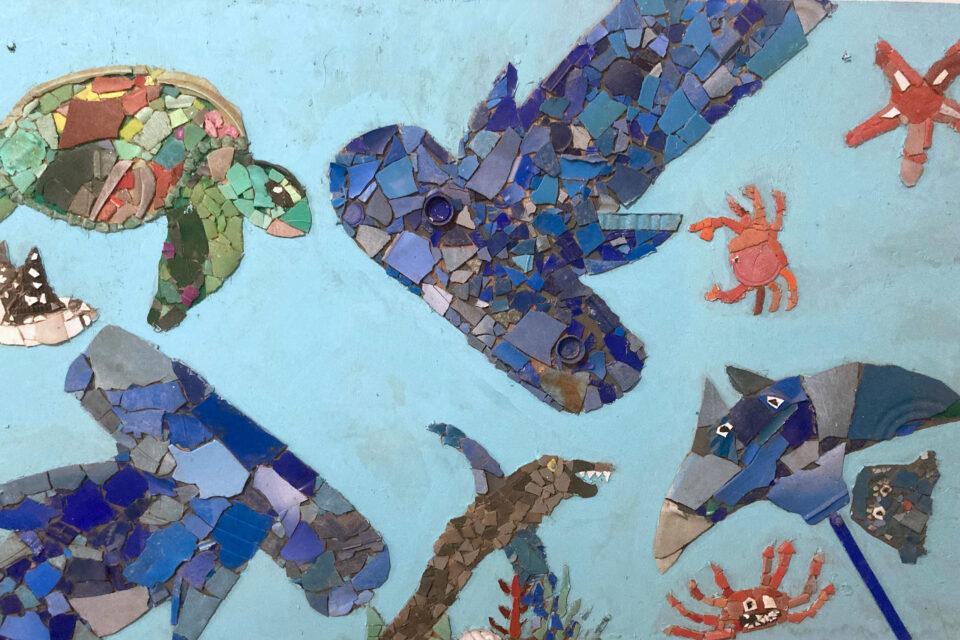
Creating a circular economy for plastics in Galapagos
